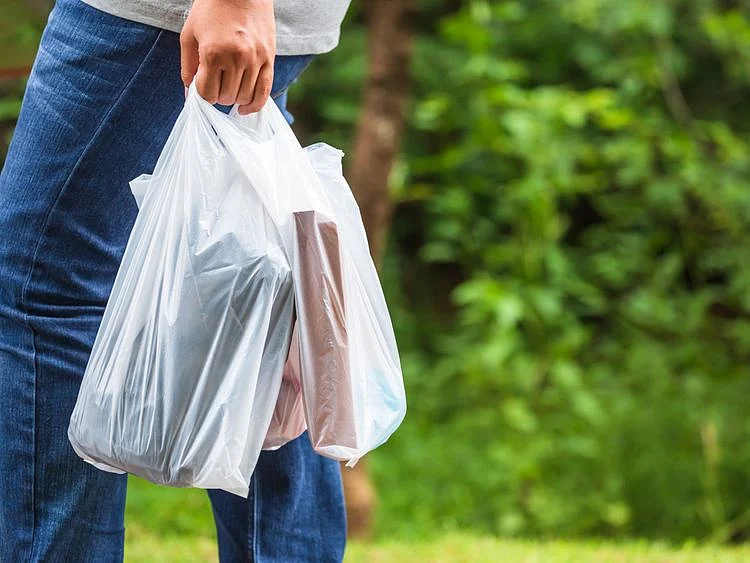Dubai’s ban on single-use bags from June 1: Time for consumer behaviour to change
Emirati environmentalist Habiba Al Marashi tells Gulf News societal buy-in is pivotal

Dubai: A leading Emirati environmentalist has underscored the urgent need for a shift in consumer behaviour in response to Dubai’s phased ban on single-use packaging products, with a ban on all single-use bags coming into effect from today, June 1.
Speaking about the initiative, which aims for a complete ban on single-use packaging products by 2026, Habiba Al Marashi, chairperson and co-founder of Emirates Environmental Group (EEG), highlighted the global movement to reduce plastic waste and pollution, aligning with United Nations Environmental Programme resolutions.
It is a global movement discussed in various UNEP platforms, she explained, emphasising the global concern over plastic waste, microplastic pollution, and the health impacts on people, especially children.
To minimise the impact, the consumer behaviour will have to change, she stated.
“While I don’t believe it is very difficult, it will depend largely on societal buy-in and the government’s ability to implement existing laws.”
She noted that in many countries, it is common for people to bring their own bags to grocery stores, and she believes that UAE residents can easily adopt similar practices. “It is simply a matter of keeping reusable bags, whether made of cloth, jute, or durable plastic, in their carrier bags or car trunks,” she suggested. Additionally, stores often provide reusable bags for purchase, she pointed out.
Al Marashi expressed confidence in the preparedness of the retail sector and consumers to adapt to the ban. “Most retail sector entities and consumers are well-prepared. Even small businesses, despite potential cost challenges, can transition with time,” she said. The ban currently does not impact food packaging, allowing items like bread to continue being sold in plastic bags. The focus remains on switching carry bags to reusable alternatives.
Available alternatives
On the topic of available alternatives and the challenges in popularising them, Al Marashi listed several options such as paper, fabric, leaves, wood, and bagasse products.
“The challenge will be for retailers and consumers to purchase these alternatives, which might be more expensive. Unlike plastics, these products cannot be sent to recycling facilities but rather to landfills, where they might be burned for energy, if possible. Thus the method of waste disposal will change after the implementation of these bans.”
Regarding market supply and affordability, Al Marashi is optimistic. As demand increases, more suppliers will enter the market, potentially lowering costs. While resources for alternatives may be slower-growing, they are more sustainable in the long run compared to oil-based plastics. She added that durable cotton bags, for example, can last a lifetime if maintained properly, making them cost-effective over time.
How EEG is helping
She said the EEG remains committed to environmental advocacy. “Since our inception in 1991, we have encouraged our members to be environmentally conscious, supporting recycling initiatives for various types of plastic waste. We will continue to collect recyclables, including plastic water and drink containers, ensuring they are recycled properly,” Al Marashi assured. She pointed out that plastics, when recycled appropriately, can be integrated into the circular economy.
Al Marashi reaffirmed EEG’s dedication to education and sustainable practices, echoing their slogan, “Together for a Better Environment.” She stressed the importance of continued efforts to ensure a sustainable future, aligned with Dubai’s ambitious environmental goals.
As the UAE has extended the Year of Sustainability, Al Marashi highlighted that the country is setting an important example for the region and beyond with various sustainable initiatives. “The Year of Sustainability sends an important message internally and externally as the country positions itself as a leader in sustainability,” she pointed out.
Sign up for the Daily Briefing
Get the latest news and updates straight to your inbox
Network Links
GN StoreDownload our app
© Al Nisr Publishing LLC 2026. All rights reserved.